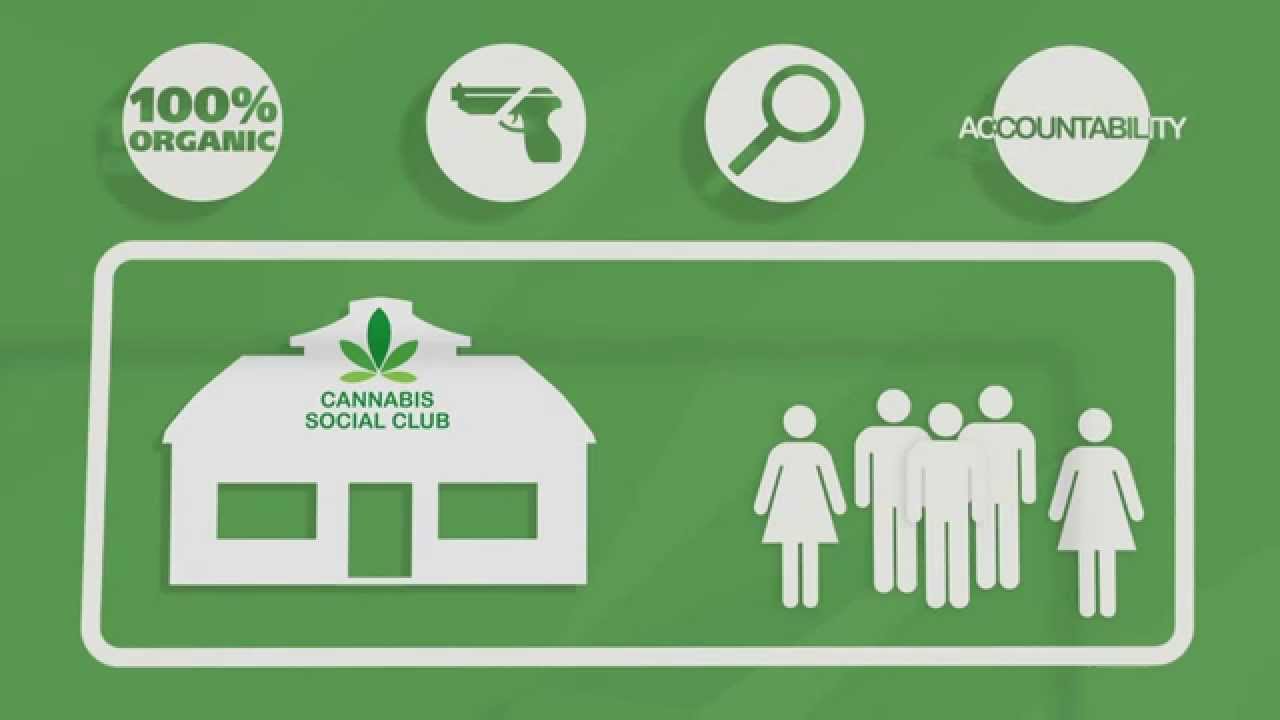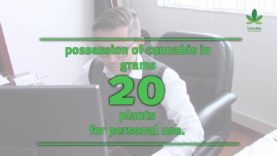
Should Cannabis Social Clubs be included in the legalization discussion?
Cannabis Social Clubs in Spain: legal or not?
Spain now counts more clubs than the Netherlands has coffeeshops. But whereas the coffeeshops in the Netherlands can sell cannabis openly (if they stick to the rules, which is difficult with an illegal supply chain), Cannabis Social Clubs were for a couple days actually legal in 2017.
Few people know this, as it was overshadowed by the Catalan referendum for independence a couple days later. This ultimately lead to the overturning of the recently adopted Catalan law, as all Catalan laws were annulled by the Federal government of Spain. The Cannabis Social Clubs movement went to court, but in the end, lost their case in the Constitutional Court one year later. In its judgment, the court states that cannabis is a classified narcotic substance, although it may be used for therapeutic purposes, so it is a matter with an impact on the criminal sphere and, therefore, reserved to the State.
In addition, 2015 saw the introduction of Spain’s ‘Gag Law’, featured in our report below. What followed were 189,947 fines for possession of cannabis in Spain according to No Somos Delito (We’re Not Criminals).
Cannabis Social Clubs as part of the regulation discussion
As regulation and legalization are spreading around the globe, Cannabis Social Clubs can be a solution for various countries and models of regulation. It was the mid-nineties when in the Spanish regions of Catalonia and the Basque Country, cannabis activists designed the Cannabis Social Club model. Further popularized and developed by ENCOD (European Coalition for Just and Effective Drug Policies) and it’s late coordinator Joep Oomen, the model is based on 7 principles which distinguish them from other initiatives. They are as follows: supply follows demand (not vice versa), non-profit, transparency, public health, open the dialogue with authorities and supporting (inter-) national activism.
Cannabis Social Clubs now exist and operate in several countries, but only in Uruguay are they included as a legal alternative to homegrowing and the pharmacies supplying cannabis. There are said to be at least 91 registered Cannabis Social Clubs operating in the small South American country.
Cannabis Social Clubs in the Netherlands
Meanwhile in the Netherlands, the only Cannabis Social Club (Tree of Life) operating following the guidelines stated above, is preparing legal action against the Bureau of Medicinal Cannabis (BMC).
BMC rejected their application for an exception, which would have allowed scientific research into the needs and preferences of cannabis consumers.
Apart from Tree of Life, also several so-called Medical Social Clubs have sprouted, most notably the chain of Suver Nuver clubs. Already operating for several years by supplying their members with cannabis oil through parcel shipping, they have only recently been asked for a conversation at the police headquarters in the north of the Netherlands. Suver Nuver has since continued their operation.
The Netherlands is working on experiments with regulated cannabis growing, but Cannabis Social Clubs are not part of the discussion.
Cannabis Social Clubs in Belgium
Following the unexpected death of Joep Oomen, the worst was feared for the Cannabis Social Clubs in Belgium. Oomen founded the first Cannabis Social Club (Trekt Uw Plant) in Antwerp back in 2006 which has since been acquitted twice in court.
Following a recent acquittal of a club in Namur, Trekt Uw Plant is facing another court case, but there’s hope for another acquittal ruling.
Cannabis Social Clubs in the UK
Across the pond, the UK Cannabis Social Clubs movement is booking progress, albeit usually not following all the guidelines (note: you could say the same for Spain).
Where they do book progress is by engaging in the conversation with the media, as the Teeside Cannabis Social Club recently showed, receiving support of local law enforcement.
Part of the future?
The question that arises is whether Cannabis Social Clubs will be included in future regulation laws, just like Uruguay did. But it’s more likely people will be watching the stock market in Canada, rather than considering alternatives that would benefit the consumers instead of shareholders.












